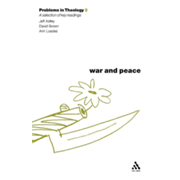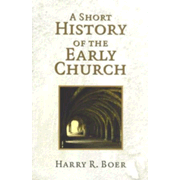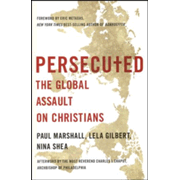OUR BIBLE lesson for the Third Sunday of Lent comes to us
from the Gospel According to Saint Luke. Presented is a scriptural account concerning
Jesus’ words spoken about the future of persons in this world who disregard
God’s will. He addressed sin and death, and to whom should the oppressed flee
for salvation.
There were some
present at that very time who told him (Jesus) of the Galileans whose blood Pilate had
mingled with their sacrifices. And he answered them, "Do you think
that these Galileans were worse sinners than all the other Galileans, because
they suffered thus? I tell you, No; but unless you repent you will all likewise
perish.
Or those eighteen upon whom the tower in
Siloam fell and killed them, do you think that they were worse offenders than
all the others who dwelt in Jerusalem? I tell you, “No; but unless you repent
you will all likewise perish.”
And he told this parable: "A man had a
fig tree planted in his vineyard; and he came seeking fruit on it and found
none. And he said to the vinedresser, 'Lo, these three years I have come
seeking fruit on this fig tree, and I find none. Cut it down; why should it use
up the ground?'
And he answered him, 'Let it alone, sir, this
year also, till I dig about it and put on manure. And if it bears fruit next
year, well and good; but if not, you can cut it down.” (Luke 13:1-9)
 |
Problems in Theology: War and Peace By Jeff Astley, Brown & Ann Loades |
Warning Signs?
First to do proper justice to any Bible study, we must
prayerfully view each occasion as a conversation between ourselves and God.
Therefore to interact with the text properly, we are to maintain a method of
“exegesis”, rather than “eisogesis”. This means that we are to receive knowledge from God’s holy Word speaking clearly to us, rather than imposing upon it what we want to hear. If we sinfully do the latter, we place ourselves in great danger. The consequence can be much more horrid than experiencing physical death.
Doing proper exegesis
with this text from Luke then, we note that it helps to cradle this wondrous
message within the environment of what had been said both before and after
our reading. Thus we get a better picture of the “sitz en leben”
(situation-in-life)” to which the text relates. Using this technique, we
find that Jesus taught while he continued undaunted toward the Jerusalem temple. He knowingly walked toward the cross of Calvary. While doing so, he emphasized
to those around him that the conflict that our faith in God causes will put us at odds with those who are bent toward
establishing or maintaining their own worldly powers.
Our Lord thus reminded his
listeners that God confronts evil. This is why we clearly need to hear the
warning. for as sinners we are in league with evil. The verses said that our Lord reminded his listeners of the Roman killings of Jews in
Galilee, about how all died and everyone is considered the same in mortality. But we note that the text we find here was recorded Luke’s gospel alone. We must ask, therefore,
why this is so.
To answer, first let us consider that this gospel was written c. 85 AD, likely in Asia-Minor. Therefore the gospel writing was more gathered and expansive than that of blessed Mark's witness (written c. 65-70 A.D.) My thought thus centers in the idea that this reading may more fully tell of this scene because many Lukan churches were receiving continued persecutions from Rome, but were gathering without the apostolic presence that the earlier churches enjoyed. As well, it is likely that Luke enjoyed greater resources for expanding the original witness. Consequently, relating Jesus’ conversation about persecutions and death became more important and could be more easily accomplished. Thus we wonder if the expanded text intentionally addressed growing anxieties specifically within Luke’s audience?
To answer, first let us consider that this gospel was written c. 85 AD, likely in Asia-Minor. Therefore the gospel writing was more gathered and expansive than that of blessed Mark's witness (written c. 65-70 A.D.) My thought thus centers in the idea that this reading may more fully tell of this scene because many Lukan churches were receiving continued persecutions from Rome, but were gathering without the apostolic presence that the earlier churches enjoyed. As well, it is likely that Luke enjoyed greater resources for expanding the original witness. Consequently, relating Jesus’ conversation about persecutions and death became more important and could be more easily accomplished. Thus we wonder if the expanded text intentionally addressed growing anxieties specifically within Luke’s audience?
Take note that the reading reminded those
of Luke’s house churches that death is our human lot before God. This stands historically, as the almost universal and
unchanging divine punishment for human sin. Therefore, the reading clearly reminded Christian
followers to repent of sins and doubt without delay. Through Luke, Jesus called upon them to realize forgiveness
and the promise of eternal life that had been given to them through our Lord's sacrifice.
Why was this reminder
so important? The answer I think resides in the unfolding history of the Church. By the
time of this gospel’s writing and its distribution, stories of such as the horrific deaths
that had occurred during fall of the Temple in Jerusalem, and the slaughter of Jews at Masada
(c.70A.D.) had most certainly caused great fear in all the Jewish and Gentile
communities. This fear, as designed by Rome, quaked persons in Asia Minor, Israel and Syria alike. We note that at the time of the temple's destruction, the Jews of
Jerusalem had been widely dispersed by Rome. Thus the Jewish leaders had widely scattered, and had fallen to
scapegoating in the synagogues of Israel and the Gentile regions. Consider that while
yet steeped in the holy work of translating the Hebrew scriptures into Greek, they pointed
beyond themselves to the “troublesome” Christians. They stated to suspicious Roman
authorities that subversive Christians were causing trouble. First, they said the Christians were causing unrest, by failing to keep the Jew's kosher rules. Second, they were into
such far out travesties as grave robbing and cannibalism. In this last the Jews railed
hotly against Christians. They threw many out of synagogue membership clamoring that
they “drank the blood and ate the body” as part of their cult's liturgical rituals. By complaining to the Romans who were charged with maintaining the peace, the Jews deflected Rome’s suspicions placed upon themselves... and regained a more tolerated
status around the Empire.
 |
A Short History of the Early Church By Harry Boer / Wm. B. Eerdmans Publishing Co. For readers who want a brief yet reliable introduction to the history of the early church as well as for those who are looking for a quick review of the period, this volume furnishes a concise overview of the key events, figures, controversies, and councils essential for a proper understanding of the first seven centuries of the Christian church. Harry R. Boer provides background on the world into which the church was born, surveys the life of the church from the minstry of Jesus until 600 A.D., examines the effects of persecution and heresy on the church, explains the role of several key church leaders, and focuses specifically on the church's ongoing struggle to formulate proper doctrines of the Trinity and of Christ. Each chapter is clearly outlined and concludes with several discussiquestions that enhance the book's use as a study guide for church groups or as a text in courses on early church history. |
Be Forgiven and
Proclaiming!
We note that rather than reprisals, even in the face of threat an evangelical emphasis was next driven home by
Luke. In the second portion of today’s lesson we see that he passed along
Mark's recorded story of Jesus talking about the fruitless fig tree. The scene had been delivered to at least the
church in Rome and Alexandria by the earlier gospel (Mark 11:12-14). We must therefore ask,
“Why was this fig tree story used here?” I doesn't seem to fit in with the previous conversation.
The answer for its
presence becomes clear as we remember that this section was likely derived directly from Mark… or from
the same source that Mark used. It had warned Mark's communities against
barrenness of witness. You see, the warning about being cut down as an unproductive
branch was well placed. In Luke's gospel then, the focused task as inheritor’s of the apostolic
message was that they were to remain faithful to the gospel proclamation, even though the apostles were gone from the scene. We are reminded that both Peter and Paul had died over a decade before this Lukan writing.
We are also reminded that this gospel reading told of certain physical death for every human being, and reminded of the established call to continue in the face of persecutions. The connection comes to us through Luke from the mouth of
Christ. It was Jesus then, through the Spirit, who called Luke’s readers to repentance
and forgiveness. They, and therefore we also… are called by him to “turn away” from
depending upon how this world’s powers are going to behave. In the midst of our living and dying, we are to just bear fruit…
and preach the gospel!
Given that all evil being the
same in effect now as then, and that we humans are not now to hope for longevity or lasting accomplishment outside of Christ, let us be
reminded in knowing that we are each sinful. Towers most certainly still fall upon
us as well as the ancients. They do so upon us and upon everyone around us. Therefore, we Christians
should realize that today those who yet live amid the echoes of the World Trade Center
crash need to hear and be graciously baptized into the kingdom. You see, in baptism received by faith, we are receiving the promise from
God that we are the recipients of eternal life. This life was and is yet given through the crucifixion, death and Resurrections of Jesus Christ.
 |
Persecuted: The Global Assault on Christians By Paul Marshall, Lela Gilbert & Nina Shea |
Consequently, we of the Christian church
have been given a gift which is to be opened, used abundantly and shared. By doing
that task, we shall bear the fruit of God’s holy Word. Though we are shoveled alike into graves alongside unbelievers... laying in the dirt and manure of either local or
world news... as redeemed sinners made saints our words may bring others into the kingdom of God. The very
proof of the Holy Spirit’s working through our Christian witness shall be seen
and heard by those who come after us.
Certainly, let us be reminded then. Though we are yet sinful sheep following our Good Shepherd, we are brought to realize that
we share the character of Luke’s communities. We too wander distressed and
scattered, but by this reading we of the Christian church may also see that our
salvation comes not by our own doing, Through Christ's work upon the cross, salvation come to us through the power of the Holy Spirit
working the miracle of faith within us. Jesus calls us through the
Spirit.., “Turn around… be forgiven, and believe the Good News!” We who are the
baptized today exist just as the churches of Luke, empowered only through grace upon
grace. We remain called as those so long ago to proclaim salvation to others, so they may join with
us at the foot of the cross.
Please be invited to view a recent personal video...
Please be invited to view a recent personal video...
May the Peace of God, that surpasses all human understanding...
keep your hearts and minds in Christ Jesus our Lord!



No comments:
Post a Comment